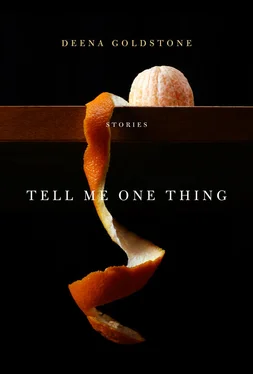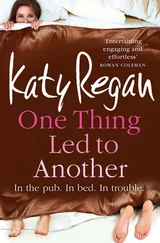Sundays were always gardening days when Brian was alive. Not that Trudy gardened. No, that was Brian’s domain, and over the years he made of their spacious backyard an Eden. That’s the way Trudy thinks about it. She couldn’t name more than a few of the shrubs and vines that Brian planted, but that never stopped her from appreciating the way they enclose the backyard in a circle of green, splashed with the vivid colors of their flowers, coral, deep purple, pristine white, and in the summer, the ruby red of the bougainvillea. And years ago, when Brian decided to grow tomatoes, then squash and peppers and eggplant in the summer and lettuce and snap peas and broccoli and cabbage in the winter — they had their own urban farm.
The garden misses Brian, even she can tell. Armando, their gardener, does his best to keep things growing, but he comes just once a week and his job is really only to cut the lawn and tidy up. The extra he does — cutting back leggy shrubbery, watering when she has forgotten to, fertilizing the plants just when they need it — Trudy is grateful for but she truly feels she can’t ask more of him. And so the garden mourns Brian’s absence in its own way.
Enough , Trudy tells herself. Maybe she says it out loud. She’s doesn’t know these days when she speaks her thoughts and when she doesn’t. There’s nobody there to hear her, so she’s not sure.
She takes the petition off the table and heads out the front door. The house on the corner, the opposite side of the street, has a white picket fence. The gate is painted yellow and has a heart-shaped cutout atop it. Too precious , Trudy immediately thinks, where are we, Mayberry RFD? There’s a tiny bench on the small front porch with a matching heart-shaped pillow on it. Trudy almost turns around. These people aren’t going to sign my petition , but they do. A white-haired couple in their seventies is as nice as can be. Neither needs to hear Trudy explain the whole problem. The man simply says to her, “You have honest eyes. Of course I’ll sign.” And then, as Trudy starts to turn away, step down off the little porch, he throws her the curve. “I liked your husband very much.”
Trudy is stopped. “So did I,” she says, “and thirty-two years wasn’t enough.”
“You poor dear” is what the woman says, and Trudy shoots back before she can stop herself, “I’m just fine!”
And then, once the couple has closed their door Trudy has to sit down on the curb, her legs not steady enough to take her to the next house. Those white-haired people, that was supposed to be her future, Brian’s and hers. Growing old together, tottering around in their little house until they were well into their nineties. Trudy would never have admitted it to anyone, but that was her plan for the future. Now all she sees is an empty space where loss is a daily companion. Despite herself, she sighs, then pushes herself to stand and finish the task. She takes a measure of this side of the street. There are six more houses to go.
At the house next to the older couple, a wood-shingled bungalow directly opposite her own, no one is home. She tries the one next to that, a beige, nondescript ranch. And again, no one answers the bell, but there’s a truck in the driveway and Trudy hears muffled music from somewhere inside the house. She tries to remember who lives there but can’t.
She rings the bell again and then knocks smartly on the door. No one appears, but she sees the closed living room drapes move on the large window, as if someone was peeking out. Trudy is sure now that someone is home and it makes her inordinately furious. She’s not some religious proselytizer who will talk endlessly about soul saving. Is that what she looks like?! She isn’t even a Girl Scout with disgusting cookies to sell. She’s a respectable woman, here about a park. Someone should have the decency to answer the door!
She tramps off the porch, elbows the shrubbery aside in order to sidle close to the house, and makes it to the front window. She knocks quickly and loudly and is startled to see a similarly startled male Asian face pop up not three inches from her own. The faces stare at each other through the plate glass until the man disappears and the curtains close and Trudy is further incensed. He is home. He needs to sign the petition.
She marches to the front door and knocks again. In fact, she continues knocking until he finally opens the door and they assess each other. Trudy sees a short man, probably in his late sixties, with steel gray hair neatly combed and parted, wearing a plaid, short-sleeved shirt and well-worn jeans that sag off his skinny frame. His face is impassive as he surveys the chubby little woman with the determined stance who is holding a clipboard. Anger radiates out of her like heat waves. Could she be so angry simply because he didn’t want to open the door? he wonders. But he says nothing. She rang the bell. Let her speak.
And Trudy plunges in. “I have a petition here stating the neighborhood’s opposition to turning Sierra Villa Park into condo units. Our position is stronger the more signatures we have.” She holds the clipboard out to him. He turns his eyes from her face, which he finds mesmerizing in its intensity, to the petition but makes no move to pick up the pen attached by a string to the clipboard. He does nothing. Doesn’t read it. Doesn’t close the door. Simply looks at the piece of paper as if he were waiting for it to do something interesting. He has learned from years of working for irrational people that the best course of action when facing anger is not to engage.
Trudy is now beyond exasperated. “Do you speak English?” she demands of him. “Is that the problem here?”
“You, I think, are the problem.”
“How rude.”
“Yes, rude,” he says, but he doesn’t close the door.
“I live on this street,” Trudy finds herself saying. She has no idea why.
He nods.
“And I work at the library.” Why is she telling him this? His silence is unnerving, maybe that’s it. “That’s why the park matters to me.”
The man picks up the pen and signs his name, Fred Murakami.
“Thank you.” Trudy has to say it.
“You are welcome.” But he doesn’t close the door, and Trudy can’t quite figure out how to get off his porch gracefully.
“That’s it,” she tells him.
“Yes.”
And finally she turns and makes her way down his front path, turning right at the sidewalk and moving to the next house. She can feel his eyes on her back the whole way.
She gets signatures from three of the last four houses and feels, as she walks home, as if she’s climbed Mount Everest. Later that evening, as she eats a bowl of cereal for dinner, she reviews her afternoon’s work and sees that he has signed, “Fred Murakami, Handyman,” even though the petition didn’t ask for the signer’s occupation.
TRUDY BRINGS THE PETITION into the library the next morning and Clemmie looks askance at it.
“I know what you’re going to say and I’m going to ignore it,” Trudy says before Clementine can get her mouth in gear.
“Well then”—and here Clemmie chooses her words carefully—“I was only thinking what would happen if a city official came into the library?”
“You mean like Scott Thurston?”
“Yes, maybe Scott.”
“He’d tell us to put the petition away. He’d say this library is a city service and not a place for a personal agenda.”
“Exactly!” Clemmie feels vindicated.
“And I’d ignore him as soon as he walked out the door.”
They are at an impasse and that is where things are going to stay, Clemmie knows by now. Four years working under Trudy is more than enough time to understand that Trudy doesn’t budge. Truthfully, four months was enough to pick up that predominant character trait — inflexibility.
Читать дальше












